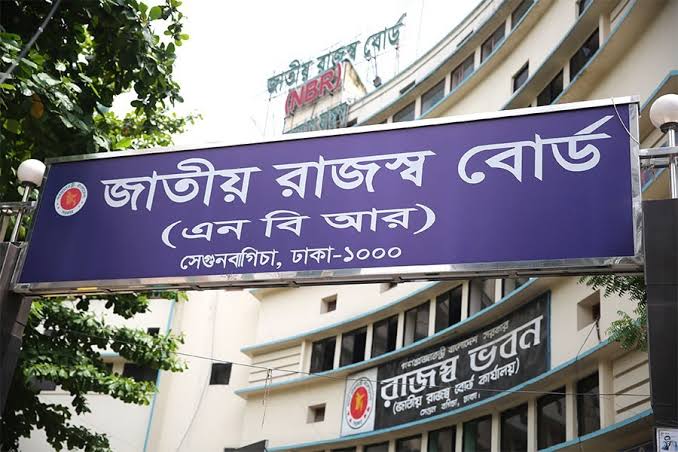SAMI
Published:2020-03-20 14:53:45 BdST
Revenue collection sees massive fall in 8 months
FT ONLINE
It has been a trend that the government will set a high revenue target but will fall short of it, with no difference this year too.
The revenue collection witnessed a deficit of more than Tk45,000 crore against the target of Tk1,89,823 crore in the first eight months of the current fiscal year, according to the finance ministry data.
Now the revenue board will have to collect TK1,81,185 crore with four months in hand.
Against this backdrop, the government has become dependent on high bank borrowing to meet operational costs as well as implement the development budget.
The revenue collection during this period (July 2019 to February 2020) was around 24 percent less than the target, according to NBR sources.
Officials of the revenue authorities blamed a high target, tax exemption for a number of goods and a slowdown in business activities in the country for the deficit.
The latest NBR data, however, said the overall revenue growth was 8.25 percent in the first eight months.
NBR Chairman Md Abu Hena Rahmatul Muneem said the revenue collection decreased to some extent due to a fall in imports and exports.
"But, the collection increased in the past few months. We will be able to achieve the target at the end of this fiscal year," he asserted.
Dr AB Mirza Azizul Islam, a former financial affairs advisor to the caretaker government, nevertheless believes that a higher target than the capacity caused the NBR to face a huge deficit in revenue collection.
"Every year, a mammoth target is set for the NBR without increasing its capacity. An unrealistic target causes the government to revise the figure every year," he said.
He also said he had already sensed an even bigger shortfall this year which might appear true.
The revenue board source said customs, among all sectors, suffered the biggest revenue deficit, over Tk17,000 crore. The growth for the sector was lower than even three percent.
Customs officials said imports of high-taxable products, including cars, clinker and capital machinery, were low in this period. Besides, some goods are yet to get released from Chattogram and Benapole ports.
Meanwhile, the central bank's latest data substantiate the NBR statement about the revenue shortage.
According to the Bangladesh Bank, imports of almost all products, except for tax-exempted petroleum, declined in the current fiscal year. In the first eight months, overall imports fell by nearly five percent.
Apart from lower imports, slowdown in domestic consumption also caused a lesser collection of Value Added Tax (VAT).
Even though the sector witnessed an almost eight percent growth, it fell about 21 percent short of the revenue target.
NBR officials said the government spared the petroleum sector from a big amount of VAT this fiscal year. Besides, VAT collections from cigarette, banks and the construction sector, including steel, also reduced.
A VAT official, on condition of anonymity, said VAT collection was usually low at the beginning of the fiscal year.
But, it will increase once the Electronic Fiscal Devices are in all business institutions. As a result, the deficit in the sector will drop at the end of the year, he also said.
Among all sectors, the income tax performed better in revenue collection. During the first eight months, the NBR collected Tk44,624 crore against the target of Tk57,782 crore.
However, a low revenue collection has posed negative impacts on the implementation of the national budget. The government has already borrowed more than its yearly target from the banking sector to implement the Annual Development Programme (ADP).
A Bangladesh Bank source said, in the first eight months of fiscal year 2019-20, the government borrowed more than Tk52,000 crore from banks against the target of Tk47,364 crore. The government's high bank borrowing caused the private sector credit growth to go down to 9.20 percent.
Meanwhile, the planning ministry officials said the rate of ADP implementation in the country during these eight months was the lowest in the last two decades.
Slightly over 37 percent ADP was implemented, which was over two percent lower than that in the corresponding period last fiscal year (2018-19), according to the ministry's data.
Habibur Rahman, additional secretary (budget) to the finance ministry, said the government prepares its expenditure plan as per the revenue target. Borrowings from banks and savings schemes are very normal if the revenue collection is not satisfactory.
Unauthorized use or reproduction of The Finance Today content for commercial purposes is strictly prohibited.


